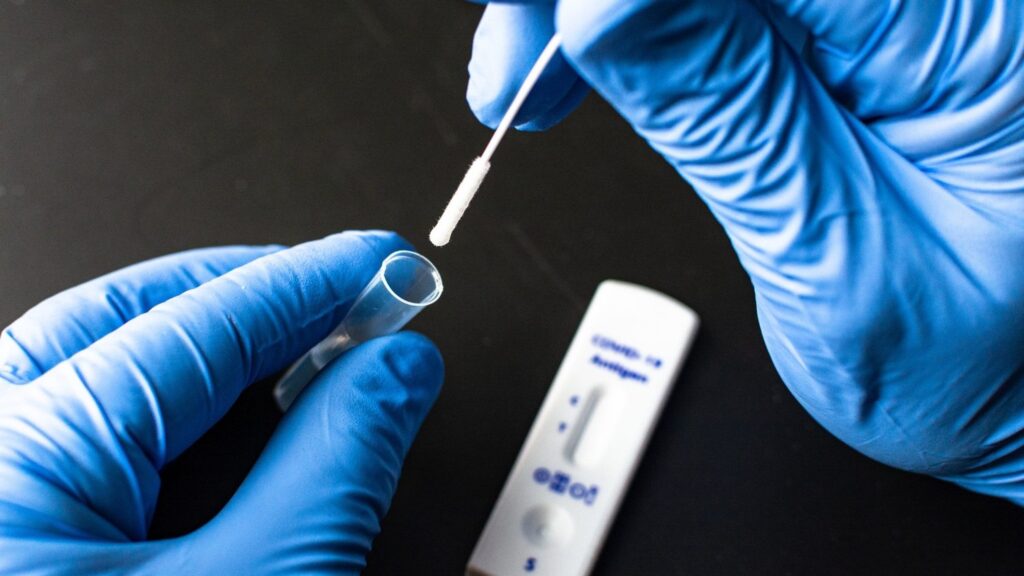Planning an event? Testing people for Covid-19 at the door can reduce spread by 40% over testing three days ahead, study says

Organizers of events can nearly cut in half the risk of their guests transmitting Covid-19 by testing them at the door, according to a new study by Yale School of Public Health epidemiologists.
The research, published in the International Journal of Public Health, “is the first to use statistical analysis to gauge how effective test-timing strategies are at limiting the spread of Covid-19,” a Yale news release says. Ideally, “People should be tested on the day of an event to best protect others in their immediate social or work group. Policies that require people to have a negative Covid test within 72 hours or more of their arrival at a location — which many countries enforce for travelers — hardly help, the researchers said.” That’s because the coronavirus grows exponentially in the body.
A rapid-antigen test, taken too early in the growth period, “can fail to detect faint traces of the virus before it builds up enough load to trigger a positive test,” the researchers said. “After a matter of hours, someone who tested negatively — yet who was unknowingly infected and contagious — could quickly spread the virus to others.”
Conducting a test 72 hours before an event only reduces the amount of transmission by Covid by about 4 percent, while testing immediately before the event “can eliminate transmission entirely at a small event, and at large events will typically reduce the amount of transmission by more than 40%,” Yale says. “If testing immediately prior to social mixing is not possible, testing 12 hours before can still help. The researchers’ models indicate that tests performed 12 hours before an event can reduce the probability of Covid transmission by more than 25%. If testing is done 24 hours in advance, the risk lowers by less than 20%, the researchers said.”